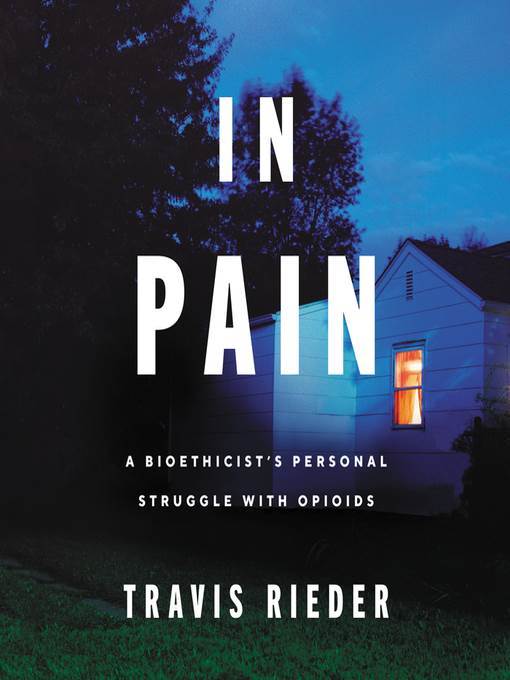
In Pain
A Bioethicist's Personal Struggle with Opioids
مبارزه شخصی یک موسسه بیوتکنولوژی با اورویدها
کتاب های مرتبط
- اطلاعات
- نقد و بررسی
- دیدگاه کاربران
نقد و بررسی

April 15, 2019
A debilitating accident prompts a man's descent into opioid dependence. Rieder (Toward a Small Family Ethic, 2016, etc.), the assistant director for Education Initiatives at the Johns Hopkins Berman Institute of Bioethics, retraces the aftermath of a traumatic 2015 accident that shattered his foot and forced him to endure six grueling surgeries. Eventually, the author was sent home with a stockpile of opioid painkillers for his excruciating pain. Rieder doesn't skimp on the grisly post-surgical details, including "the boiling pain of carved tissue" or how "coming out of anesthesia was basically the process of discovering how awful it was to be conscious." Sprinkled among the chronological chapters of his recovery are fascinating sections in which the author discusses the historical narrative of opioids, racial differences in pain assessment, and the intricate mechanics of physical pain, that "fiery, boiling, acidic" suffering that Rieder knows well. As he recovered, his physician advised him to wean himself off the high doses of oxycodone he was taking. The author describes weeks of agonizing withdrawal symptoms, including insomnia, nausea, cold sweats, and terrifying emotional darkness, which, as a new father to a young daughter, left him unable to care for her at home. Though he fortunately overcame his opioid dependence, Rieder believes he is one of the lucky ones and that improved withdrawal management and behavioral intervention programs must be mandated in hospitals to "help patients escape the grip of this medication." Later in the book, the author takes a critical detour to skillfully address the primary challenge facing opioid-prescribing physicians: initiating dependency while dutifully attempting to alleviate severe patient discomfort. Rieder recognizes in himself--and others, including his mother, who had knee replacement surgery--the dilemma facing the medical community: treating patients in pain with dangerously addictive medications responsible for killing thousands yearly. With this smart, riveting, real-life account, the author proves himself a convincing and effective advocate for opioid use reform. A harrowing cautionary narrative that speaks to patients and physicians alike on the ugly reality of the enduring opioid epidemic.
COPYRIGHT(2019) Kirkus Reviews, ALL RIGHTS RESERVED.

You may have to hit the pause button to lower your heart rate during Travis Rieder's moment-by-moment retelling of the motorcycle crash that upended his body and his life. But Rieder brutally reveals that this pain is only the pre-show. The worst of his suffering would come from getting off the opioids he was prescribed during his lengthy medical treatment. Transformed by his experience as a patient, Rieder tackles the opioid crisis in his work as a Johns Hopkins bioethicist. He mines the medical data with a pulsing intellect and a desire to push listeners into a new conversation about pain treatment that can truly save lives. Rieder's compassionate and honest performance will resonate with any listener who has experienced medical trauma or severe pain. J.T. � AudioFile 2019, Portland, Maine

























دیدگاه کاربران